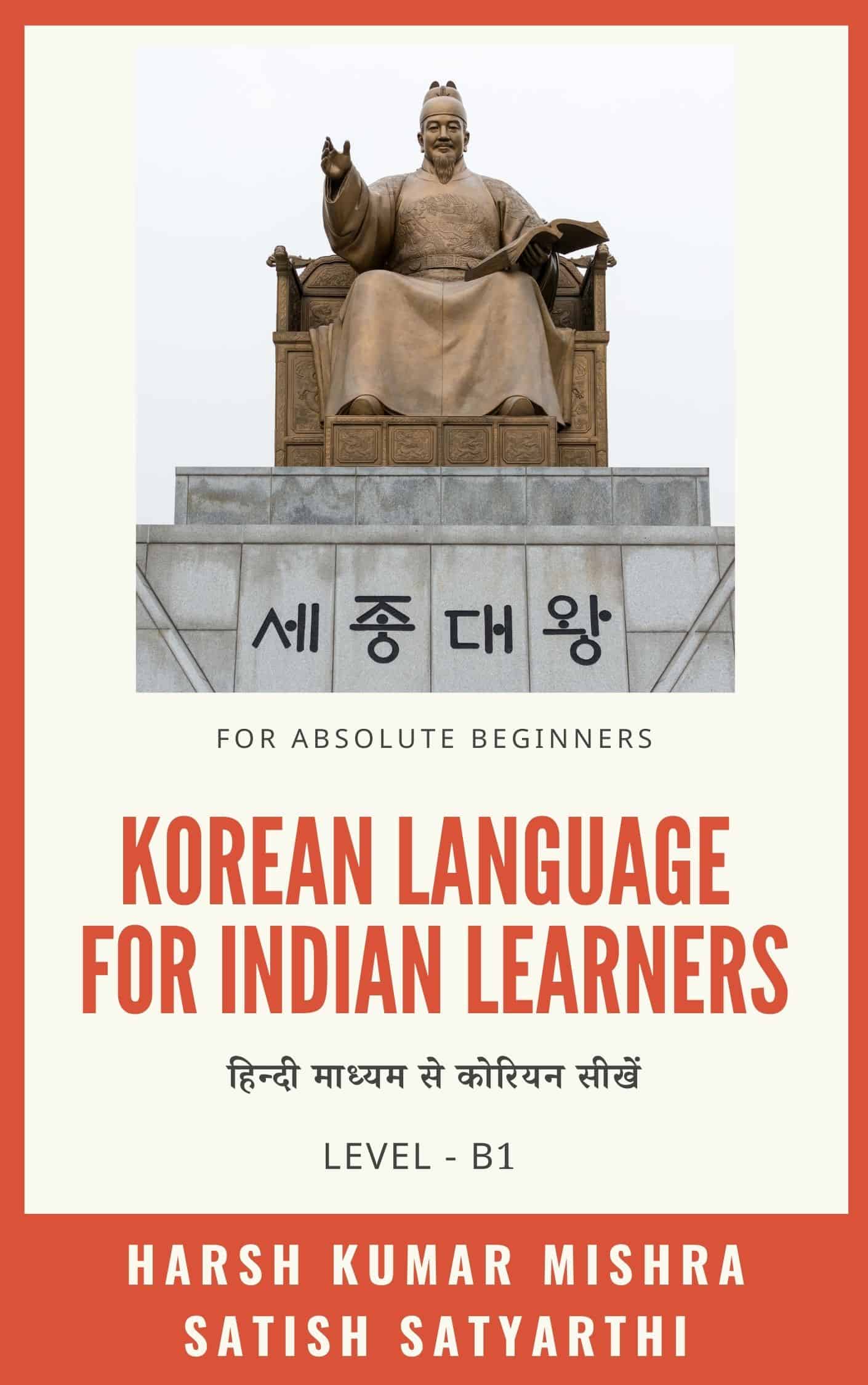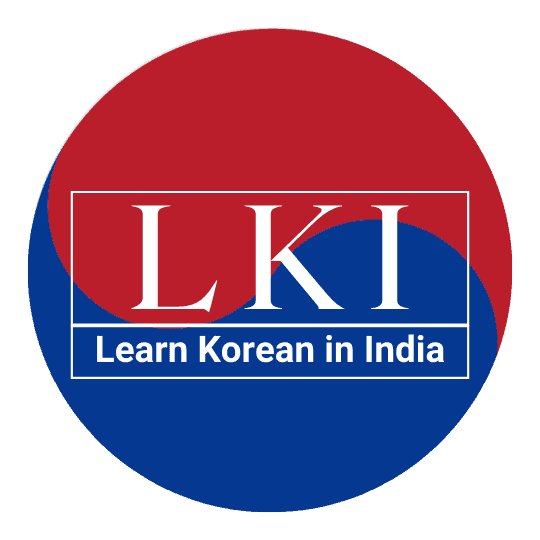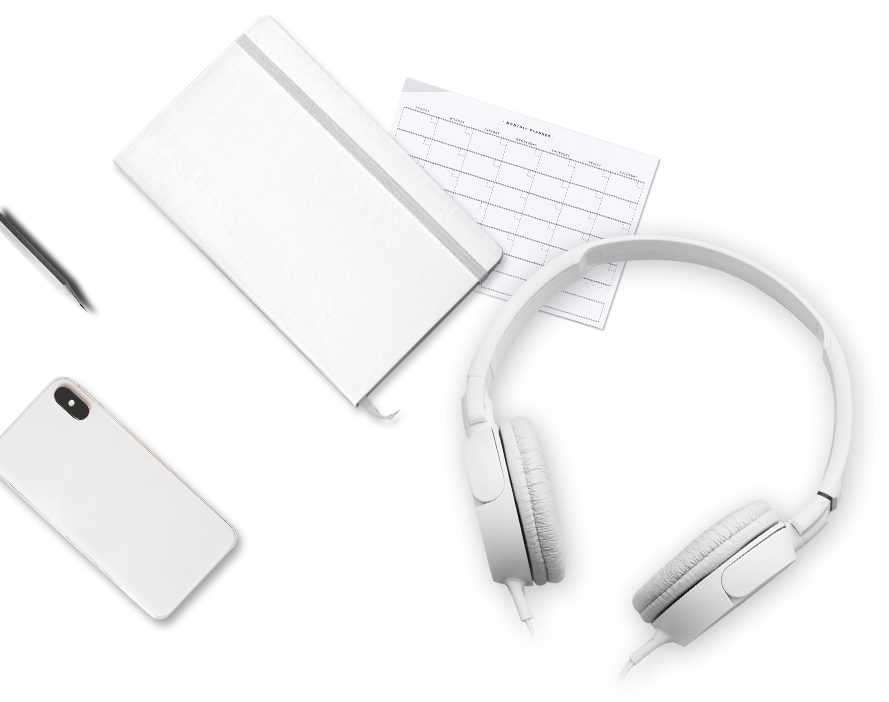Appreciating someone for what they did for you is one of the vital and humble gestures considered. And that is why we have combined 10 different ways to say Thank you in Korean for you.

Best Book to Learn Korean through Hindi
यह किताब हिन्दी-भाषी भारतीय छात्रों को सरल और प्रभावी तरीके से कोरियन सिखाने के उद्देश्य से लिखी गई है। किताब को हमने बोलचाल की भाषा में लिखने का प्रयास किया है जिससे कि ज्यादा से ज्यादा लोगों के लिए समझना सरल हो। मैं और हर्ष दोनों ही कई वर्षों से कोरियन भाषा को सीख और सिखा रहे हैं और उस अनुभव का उपयोग करके हमने इस किताब को भारतीय छात्रों के लिए ज्यादा से ज्यादा बेहतर बनाने की कोशिश की है। हमें पूरा विश्वास है कि इस किताब के माध्यम से थोड़े ही दिनों में आप कोरियन लिखना, पढ़ना और बोलना शुरू कर देंगे।
1. 감사합니다
This might be one of the first words that we learned. It also turns out to be the one of the commonly used terms for Thank you in Korean as it is in a formal (존댓말) language.
감사합니다 (gam-sa-ham-ni-da) comes from the adjective (형용사) 감사하다 (gam-sa-ha-da) which means “to be thankful for something to somebody”.
2. 고맙습니다
Another way of being thankful towards somebody is 고맙습니다 (go-map-sum-ni-da). Many think it indeed is not a formal way of thanking. However, if you just add 습니다 (the formal ending), it becomes a polite way to thank.
3. 고맙다
Other popular method is 고맙다 (go-map-da). It is vividly used in the impolite form, with your close people.
4. 시간 내주셔서 감사합니다
Translated into Thank you for your time in English, this phrase is a combination of several words and grammar into it.
Wherein,시간 내주다 (Sigan naejuda) means to give somebody time, or make time for. While 서 (seo) here stands for “for”, “because”. Literal meaning, Because you gave me time, thank you.
5. 땡큐
Another informal way is 땡큐 (ttaeng-kyu). It is a Konglish (Korean & English) version of exact Thank you. Youth of Korea mostly use this term in daily lives.
6. 도와주셔서 감사합니다
This one literal means Thank you for helping me. Wherein 도와주다 (dowa-juda) means to help.
7. 정말/진짜/너무 고마워요/감사해요
It is a bit more on the formal informal side. There are numerous honorific levels in the Korean language and this one is the one natives use in their everyday lives.
정말 (Cheong-mal), 진짜 (jin-jja), & 너무 (nomu) all stand for Very & really depending on the context. While 감사해요 (gam-sa-hae-yo) and 고마워요 (go-ma-wo-yo) means Thank you.
See also: To learn grammar first or Vocabulary?
8. 신경 써 주셔서 고마워요
신경 쓰다 (singyeong sseu-da) means to care for somebody, so in this note, you are thanking somebody to be considerate of you, to care for you. 고마워요 on the other hand is said to be the sweetest version of thanking.
The literal translation becomes, thank you for caring for me.
9. 양해 주셔서 고마워요
This is another type of stating a beautiful appreciation. The literal translation is Thank you for understanding wherein 양해하다 (yang-hae-hada) means to understand.
10. 대단히 감사합니다
대단히 (dae-dan-hi) expresses greatly, that elements that you are thanking somebody greatly and sincerely for their favours or efforts.
To conclude, you can use all of these based on the situations and honorific levels and simply say Thank you to the ones who needed.
To understand how to read and write the Korean alphabet and join our online certificate course in order to fulfill your dream to work in Korea or appear for the TOPIK exam.
Please check these pages :
- Learn Korean Script Hangeul in 1 Hour
- Join our Level 1 online certificate course
- TOPIK - The complete guide
If you are going to appear for the TOPIK test or just need a boost in Korean language we would strongly advise you to join our online certificate course. One reason is that this course is developed and taught by people who are not only top level experts in Korean language but also are passionate about teaching Korean and helping learners like you achieve their dreams.
If you're new to Korean language we would advise you to buy our KOREAN LANGUAGE FOR INDIAN LEARNERS book available on Amazon and Flipkart. Also available on Kindle.
Thank you.

